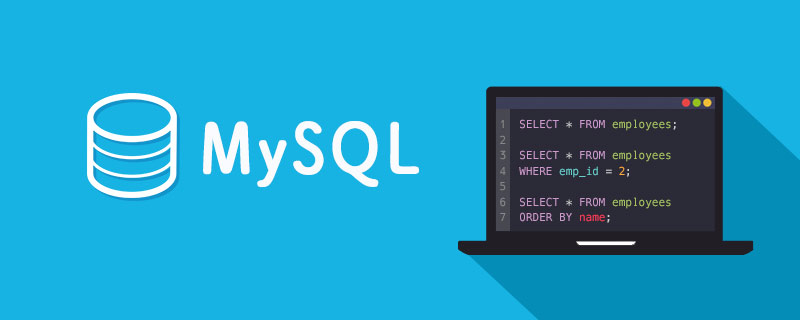Surpassing 100GB of data in your application requires you to have in-depth knowledge of how to operate and run MongoDB. MongoHQ recommends going through the 100GB Scaling Checklist as you grow. Watch the webinar recording on the subject fo
Surpassing 100GB of data in your application requires you to have in-depth knowledge of how to operate and run MongoDB. MongoHQ recommends going through the 100GB Scaling Checklist as you grow. Watch the webinar recording on the subject for the full overview:
- Identify your data behavior: Figure out how your data patterns and how they are working within your application. You will need to link your data to how your application accesses this data. Consider the simple queries and the more complex queries you will need to look up, like multi-range queries.
- Refactor your schema to simplify queries
- Remove data that does not fit MongoDB: remove “unrefactorable” data
- Separate hot and cold data
- Don’t lean on mongodump’: this disrupts RAM and causes performance issues. Consider other Backup options instead, like MMS Backup
- Check your gauges: Monitor, monitor, monitor. Even if you aren’t having performance problems, set this up now so you can keep a history of your
- Avoid queries causing page faults: MongoHQ has run benchmarks against this to prove this. A system running in memory that was running at 7,000 operations per second was cut down by 50% to 3,500 operations per second when adding 1% table scans churning on a disk.
- Track and monitor slow queries: use Dex, MongoProfessor, Mongo-QP or MongoHQ’s Slow Query Tracker.
- Buying time with hardware: Don’t get addicted to buying hardware. Before making a purchase, always consider optimization and investigate separating and pairing data.
Watch the full recording with tips from MongoHQ’s Chris Winslet here.
Partner Webinar: The Scaling Checklist for MongoDB - 100GB and beyond from MongoDB
原文地址:Scaling 100GB of Data, 感谢原作者分享。
 data文件夹里面是什么数据May 05, 2023 pm 04:30 PM
data文件夹里面是什么数据May 05, 2023 pm 04:30 PMdata文件夹里面是系统及程序的数据,比如软件的设置和安装包等,Data文件夹中各个文件夹则代表的是不同类型的数据存放文件夹,无论Data文件指的是文件名Data还是扩展名data,都是系统或程序自定义的数据文件,Data是数据保存的备份类文件,一般可以用meidaplayer、记事本或word打开。
 mysql load data乱码怎么办Feb 16, 2023 am 10:37 AM
mysql load data乱码怎么办Feb 16, 2023 am 10:37 AMmysql load data乱码的解决办法:1、找到出现乱码的SQL语句;2、修改语句为“LOAD DATA LOCAL INFILE "employee.txt" INTO TABLE EMPLOYEE character set utf8;”即可。
 xdata和data有哪些区别Dec 11, 2023 am 11:30 AM
xdata和data有哪些区别Dec 11, 2023 am 11:30 AM区别有:1、xdata通常指的是自变量,data则是指整个数据集;2、xdata主要用于建立数据分析模型,data则是用于进行数据分析和统计;3、xdata通常用于回归分析、方差分析、预测建模,data则可以使用各种统计方法进行分析;4、xdata通常需要进行数据预处理,data则可以包含完整的原始数据。
 AI project failure rates top 80% — study cites poor problem recognition and a focus on latest tech trends among major problemsAug 31, 2024 am 12:59 AM
AI project failure rates top 80% — study cites poor problem recognition and a focus on latest tech trends among major problemsAug 31, 2024 am 12:59 AMEveryone and their aunt seem to be hopping aboard the AI train in search of inflated profit margins and marketing hype — just look at AMD's recent Ryzen rebrand as a prime example of this AI hype. A recent study conducted by RAND has found that this
 MySQL 狂写错误日志Feb 18, 2024 pm 05:00 PM
MySQL 狂写错误日志Feb 18, 2024 pm 05:00 PM一台核心业务数据库,版本为MySQL8.34社区服务器版。从上线以来,这个数据库服务器的错误日志增增加非常迅猛(如下图所示),每24小时能增加到10多个G的容量。因为有故障报警,也还没有影响到业务的正常访问,有关人员不让重启MySQL服务。鉴于这个情况,我只好设置一个自动计划任务,在每晚的夜间定点清理这些日志。具体的操作时候在系统命令行,执行“crontab-e”,添加如下的文本行:0001***echo>/data/mysql8/data/mysql_db/mysql.log保存并退出编辑模式
 vue组件中data不能是函数吗Dec 19, 2022 pm 05:22 PM
vue组件中data不能是函数吗Dec 19, 2022 pm 05:22 PM不是,vue组件中data必须是一个函数。vue中组件是用来复用的,为了防止data复用,将其定义为函数。vue组件中的data数据都应该是相互隔离,互不影响的,组件每复用一次,data数据就应该被复制一次,之后,当某一处复用的地方组件内data数据被改变时,其他复用地方组件的data数据不受影响,就需要通过data函数返回一个对象作为组件的状态。
 More returns than sales: The Humane Ai Pin is becoming a commercial disasterAug 08, 2024 pm 01:14 PM
More returns than sales: The Humane Ai Pin is becoming a commercial disasterAug 08, 2024 pm 01:14 PMShortly after the launch of the Humane Ai Pin, scathing reviews revealed that the AI gadget was anything but ready for the market, as most of the originally advertised features either didn't work properly or were simply missing, the battery life was
 Hackers can now reconstruct screen content from HDMI\'s electromagnetic radiationJul 30, 2024 am 10:01 AM
Hackers can now reconstruct screen content from HDMI\'s electromagnetic radiationJul 30, 2024 am 10:01 AMA concerning vulnerability has been revealed in modern computer systems, as per a new study. Federico Larroca at the University of the Republic in Montevideo, Uruguay, and his colleagues have developed an AI model that can reconstruct digital signals


Hot AI Tools

Undresser.AI Undress
AI-powered app for creating realistic nude photos

AI Clothes Remover
Online AI tool for removing clothes from photos.

Undress AI Tool
Undress images for free

Clothoff.io
AI clothes remover

AI Hentai Generator
Generate AI Hentai for free.

Hot Article

Hot Tools

PhpStorm Mac version
The latest (2018.2.1) professional PHP integrated development tool

MantisBT
Mantis is an easy-to-deploy web-based defect tracking tool designed to aid in product defect tracking. It requires PHP, MySQL and a web server. Check out our demo and hosting services.

SublimeText3 Linux new version
SublimeText3 Linux latest version

SecLists
SecLists is the ultimate security tester's companion. It is a collection of various types of lists that are frequently used during security assessments, all in one place. SecLists helps make security testing more efficient and productive by conveniently providing all the lists a security tester might need. List types include usernames, passwords, URLs, fuzzing payloads, sensitive data patterns, web shells, and more. The tester can simply pull this repository onto a new test machine and he will have access to every type of list he needs.

EditPlus Chinese cracked version
Small size, syntax highlighting, does not support code prompt function






